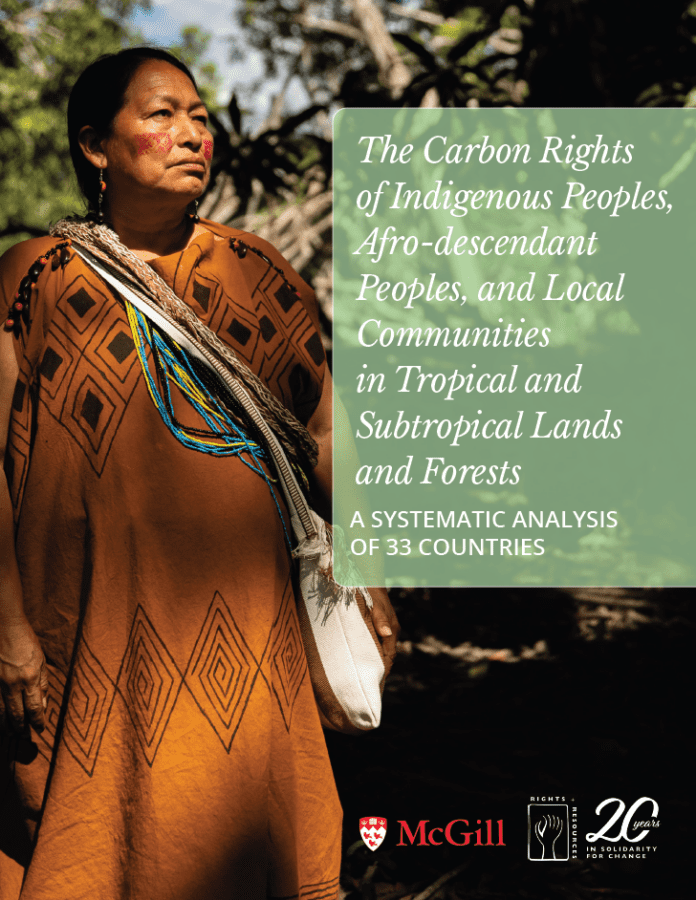Date: April 1, 2025
Since UNFCCC CoP29 in November 2024 and the nominal approval of Article 6.4 of the Paris Agreement, the regulatory landscape has been rapidly changing. This report and accompanying data provide a snapshot of carbon rights in a world where there is massive institutional demand for carbon trading to work and significant uncertainty about whether market mechanisms will deliver credible, fair, and equitable results. This report examines the current state of play as countries prepare for the operationalization of Article 6.4, offering a systematic analysis of the recognition of the carbon rights held by Indigenous Peoples, local communities, and Afro-descendant Peoples in 33 countries in Africa, Asia, and Latin America as of August 2024.
The goal of this report is to increase the ability of governments, communities, civil society, international organizations, donors, and business actors—including project proponents and carbon standards—to assess the status of carbon rights in tropical and subtropical lands and forests, with a view to taking steps to protect and enhance these rights in the context of expanding global interest in Nature-based Solutions.
Our findings reveal that most governments have not adopted the legal and policy reforms needed to recognize and safeguard the carbon rights of Indigenous Peoples, Afro-descendant Peoples, and local communities. Governments, international organizations, donors, corporations, and other proponents of Nature-based Solutions must take steps to ensure that land-based carbon sequestration efforts respect, protect, and enhance the full bundle of rights held by Indigenous Peoples, Afro-descendant Peoples, and local communities.
Cover photo: Indigenous Asháninka women from the Waypancuni community, Peru. Photo by Juan Llasca for Rights and Resources Initiative, 2024.
https://doi.org/10.53892/CQLY7821

